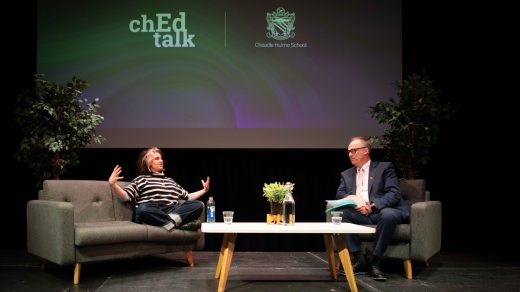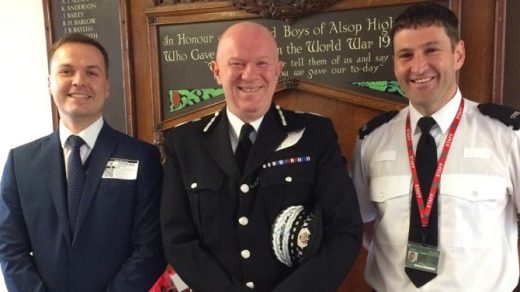Fewer than 60% of students feel safe in schools, says new report

An independent impact report produced by the National Council for Voluntary Organisations (NCVO) emphasises the urgent need for a comprehensive and collaborative whole-school approach to address and prevent bullying in English schools.
The report is the outcome of a three-year programme, ‘Embracing Difference, Ending Bullying’, commissioned by the Department for Education (DfE) and delivered by the charity Diversity Role Models. The aim of the programme is to support schools across England to tackle and prevent all forms of bullying, and create safer and more inclusive school environments for young people.
Launched in 2021, the programme reached over 300 schools, 10,000 staff and 8,435 students to build empathy, awareness and understanding of diversity, perceived differences and protected characteristics.
Key findings revealed 90 per cent of the senior leadership team (SLT) respondents and 93 per cent of school governors believed bullying was rare, while approximately half of the parents and carers agreed. Only 58 per cent of primary students felt safe in their schools, compared to 83 per cent of governors who believed all students were safe.
In primary schools, the most reported forms of bullying were related to looks (15 per cent) and perceived differences (14 per cent). Only 59 per cent of primary students said their classmates understand that their words can hurt others. Primary students were more likely to report bullying to a teacher, but this dropped from 81 per cent to 65 per cent between primary and secondary school.
Bullying remains common in secondary schools. For secondary students, the most prevalent forms of bullying were based on: looks (34 per cent), sexuality (32 per cent), gender expression – i.e. not behaving like a ‘typical’ boy or girl (31 per cent) or for being a girl (31 per cent).
Secondary students from marginalised identities and/or those with multiple and intersecting identities consistently reported higher levels of bullying. For example, disabled students were 84 per cent more likely to agree that bullying takes place related to disabilities.
Nearly 1 in 2 parents and carers disagreed that, or did not know if, bullying was rare in their school, with a further 41 per cent also disagreeing or not knowing if prejudiced language was rare.
Through a combination of school staff training, student workshops, ‘Role Model’ stories, and multimedia resources, Diversity Role Models tailored an approach to meet each school’s unique needs. This personalised strategy was informed by comprehensive whole-school research, the findings of which form the basis of the NCVO report.
There was much praise for the programme, with 89 per cent of staff reporting they had increased confidence.
Primary students’ pledges made in the workshop included:
– Be themselves
– Not make assumptions about other people
– Fight against stereotypes
– Support others who are different
– Treat others with kindness
One member of staff who took part in the training said: “We will focus on ensuring that all of our anti-bullying work which has been undertaken previously is revisited and shared with parents and carers.
“There will be a renewed focus on identifying and using diverse role models for children which link to the curriculum and ensure that protected characteristics are on display throughout school, ensuring everyone is confident in teaching and discussing them.”
A key feature of the staff training and student workshops delivered by Diversity Role Models over the three-year programme was sharing personal stories from volunteer Role Models whose identities were linked to one or more protected characteristics.
In the NCVO report, the role model stories received overwhelmingly positive feedback, with staff and students highlighting how impactful and compelling they are as an educational tool and reporting that these stories helped increase empathy, raise awareness, and challenge misconceptions long after the workshops or training.
Jac Bastian, chief education officer at Diversity Role Models, said: “Our approach to understanding perceived differences through storytelling and role models is unique.
“In workshops, our role models share their experiences of having diverse family structures and of experiencing stereotyping, bullying, and prejudice in an age—and developmentally-appropriate way.
“They also discuss how they celebrate and take pride in their differences and encourage others to be upstanders rather than bystanders to prejudice and bullying.”
The report highlights the critical need for continued efforts in creating safe, inclusive educational environments. The report also sets out a series of recommendations, as detailed below:
– Teaching a diverse and inclusive curriculum, including harnessing the power of personal stories and embedding a celebration of difference across a school’s culture, can help reduce bullying and discrimination
– Diversity Role Models should continue delivering its broader anti-bullying initiative focused on protected characteristics, in addition to its core LGBTQ+ work, to address bullying in schools
– Schools should improve their response to bullying by consulting with governors, parents, and carers and implementing robust reporting and tracking mechanisms
– Bridging the gap between students, parents, carers, and school staff is essential, particularly centring student voices, in particular, those from marginalised identities through initiatives such as student-led equality groups
– External expertise, like that provided by Diversity Role Models, is crucial in offering practical solutions to address the time and resource constraints schools face
Both the programme and report reveals the importance of collaboration, and taking a whole-school approach to raising awareness of perceived differences and encouraging young people to be upstanders rather than bystanders to bullying.
By implementing these findings into secondary and primary schools, more inclusive and accepting school environments can be created, leading to a more inclusive society as a whole.
Sarah Menzies, senior consultant at NCVO, said; “This research highlights the unacceptable rates of bullying in schools, which are worse for students from marginalised identities.
“The evaluation shows that the Diversity Role Models’ programme, ‘Embracing Difference, Ending Bullying,’ was well received by school stakeholders and had a lasting positive impact on school environments. Additionally, there was a strong demand for more training from various school stakeholders.”
This report, along with Diversity Role Models 13 years of experience supporting schools to tackle and prevent prejudice-based bullying, has enabled the charity to create a teacher-friendly Best Practice Guide. This maps out innovative and practical methods that teachers and school leaders can take to ensure that a celebration of diversity forms the heart of an effective, research-backed, preventative approach to bullying in schools.





